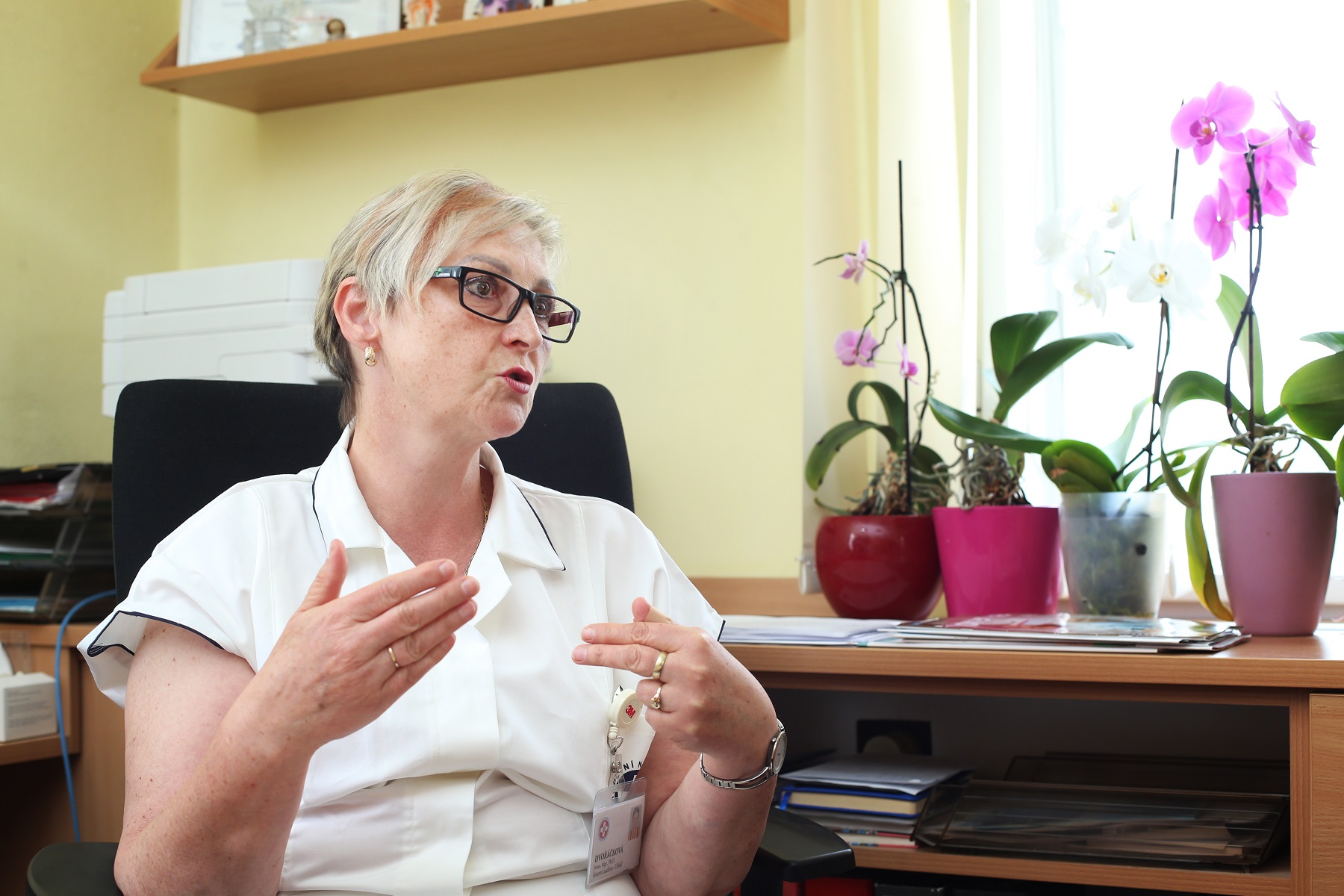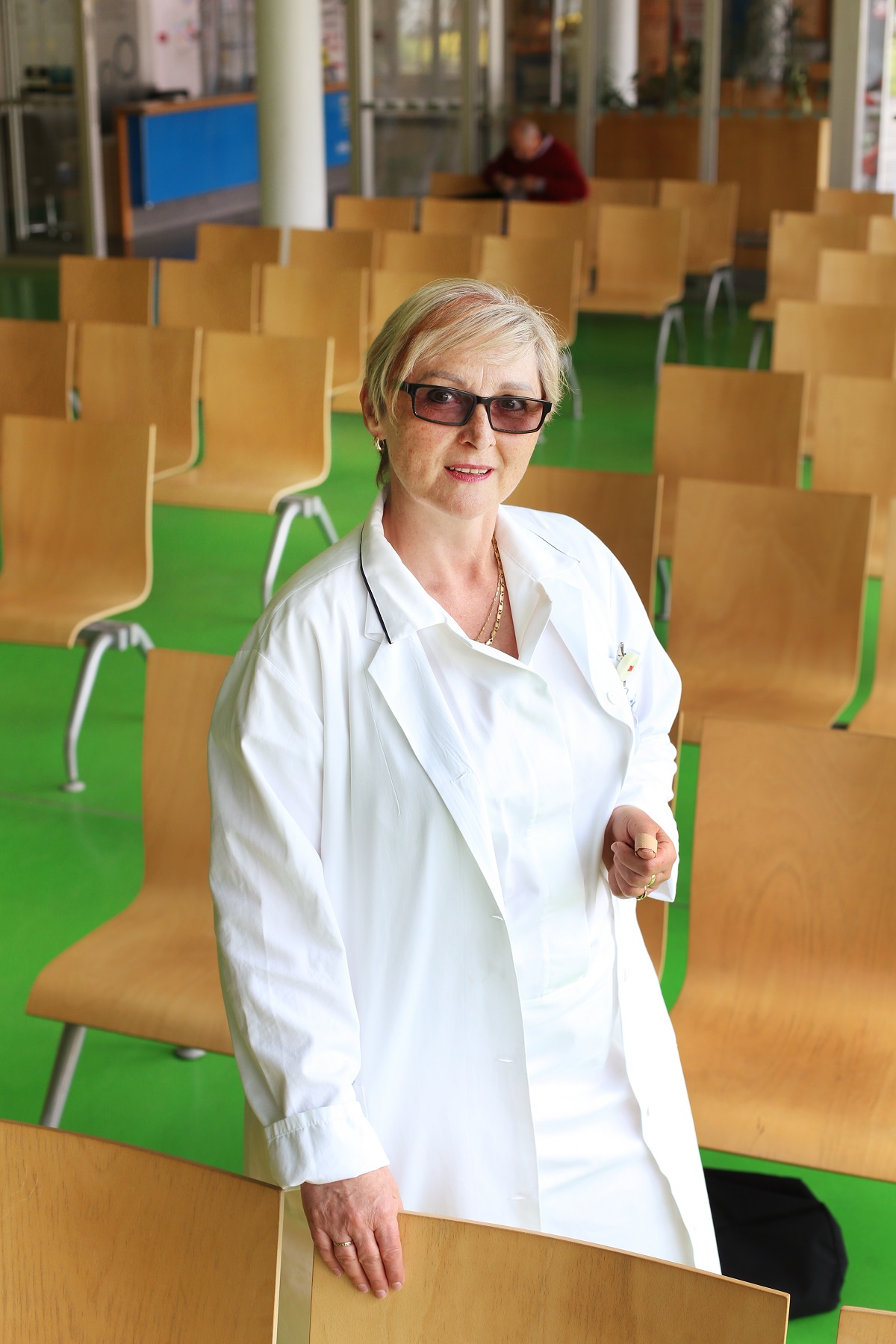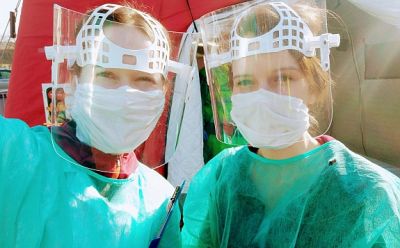The field of nursing within the medical profession has grown ever more varied and complex. While in the past, a “one-size-fits-all” approach was maybe sufficient, that is no longer the case. “They say we have a shortage of nurses,” says Ivana Dvořáčková of Hradec Králové University Hospital, “but if we were relieve them of tasks which could go to less qualified professionals, the deficit would be erased.”
Dvořáčková is a deputy to the assistant director at the University Hospital Hradec Králové and in addition to teaching at the Faculty of Medicine of the Charles University in Hradec Králové, she also works as an expert witness. This spring, she received the Nurse of the Year Award for her extensive or lifelong contributions to her field.
"It is not only a praise for my work, but also an award for the entire non-medical staff at our University Hospital, because one person alone could not achieve do much in such colossal environment” she says. Dvořáčková got her Bachelor’s from the Faculty of Medicine at Charles University, and followed up with Master's and Doctoral studies in Olomouc. In her current position, she is co-responsible for the quality of nursing care at the hospital in Hradec Králové, is involved in audit and control activities, and also teaches and organises conferences.
Some tasks can be done at home
“If the staffing plan on the inpatient ward is filled, the work organisation is well set up and the handover of shifts works as it should, a nurse can go home the end of her shift without and problem- and pursue family, hobbies or study. Compared to working directly with patients, my position is varied. In management, you don't ‘bring the patient home’, but can continue on assignments and projects,” she says. “I have the advantage that my work is very varied, and if I don't feel comfortable with one task, I switch to another and return to the original one later,” she explains.
What are things that she wishes were different? The shortage of nurses is a perennial problem in the Czech healthcare system. For optimal functioning of the wards, it is necessary to provide care mainly by a multidisciplinary team, where several professions cooperate. “If we relieved nurses some of the duties that other, sometimes less qualified, professions could cover - a nurse, an orderly, a practical nurse, a biomedical technician or an administrative worker - the deficit of general nurses would not be as great and they could have more time for professional activities and the whole team for quality nursing care,” Ivana Dvořáčková says. She adds that at the moment the hospital is not facing an across-the-board shortage of nurses but perceives a shortage only in certain fields or specialisations.
No nurse like a great nurse
The hospital cooperates closely with educational institutions, providing students with internships, summer jobs, volunteer work and the possibility of part-time study. “We are pleased that many school graduates choose our hospital to start their professional life in healthcare and we try to provide them with such conditions that they do not leave us,” says Dvořáčková. “If the work for non-medical staff is to be interesting and their activities are to correspond to current professional practice, we also discuss the competences of medical staff, especially nurses,” says the experienced nurse.
A general nurse has similar competences as a practical nurse, but in addition, she plans and organises patient care, administers intravenous drugs, dresses complicated wounds, and teaches. From a layperson’s perspective, however, the difference may seem quite minimal.
“The difference lies not only in the manual work, but rather in the level of direction and knowledge. When studying general nursing, the student or student gets more comprehensive and deeper information and learns not only what to do and how to do it, but more importantly why to do something. And when you know why, you work properly and you can have broader competencies because you can, for example, evaluate physiology from pathology,” she explains. And because she teaches at both the college and university level, she sees the students' perspectives on contemporary healthcare and can influence and shape them at least a little for the responsible, challenging but, she says, beautiful work nursing can be. For Ivana Dvořáčková, moments when she meets her former students among the hospital staff are among the most rewarding.



















